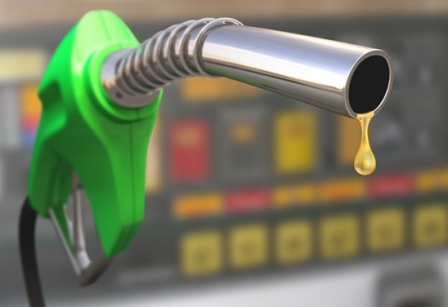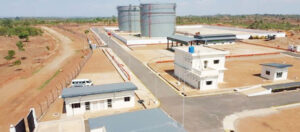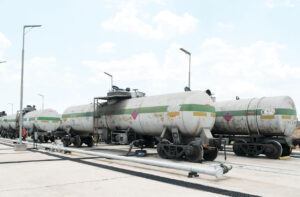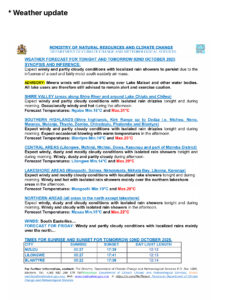
* This will allow negotiating bulk procurement contracts with favourable terms. Malawi must invest in expanding the capacity of strategic fuel reserves to buffer against global price shocks
* Transport infrastructure enhancements, especially rail links to Mozambican ports, can cut logistics costs. We also need digitising procurement and distribution systems to curb inefficiencies and leakages
By Duncan Mlanjira
As observers contend that the decision by Malawi Energy Regulatory Authority (MERA) to increase fuel pump prices effective today, October 1, was inevitable, seasoned economic analysts, Thomas Ngoma believes that the country can reduce fuel costs by diversifying import sources through regional fuel pooling.

Advertisement
“This will allow negotiating bulk procurement contracts with favourable terms,” says the UK-based Malawian executive management consultant. “Malawi must invest in expanding the capacity of strategic fuel reserves to buffer against global price shocks.
“Transport infrastructure enhancements, especially rail links to Mozambican ports, can cut logistics costs. We also need digitising procurement and distribution systems to curb inefficiencies and leakages.
“These measures, anchored in transparent governance and regional coordination, can stabilise fuel prices, and protect the good old fiscal space,” says Ngoma, who further contends that “Malawi’s fuel supply challenges are deeply structural, but they’re not insurmountable”.

Rail fuel tankers haul a lot of fuel on one trip
“To ensure ample and reliable fuel availability, the government can pursue a multi-pronged strategy that blends immediate stabilisation with long-term resilience — by:
1. Diversifying fuel import sources
* Reduce dependency on a narrow set of suppliers by negotiating with multiple international oil companies. Rather than relying on third-party importers, the government must have its own fuel buyers — trained, qualified, and fully equipped. Nations use dedicated buyers to monitor fuel commodity prices constantly;
* Exploring alternative routes through Mozambique, Tanzania, or Zambia to mitigate logistical bottlenecks; and
* Using regional fuel swaps or strategic partnerships within SADC to buffer against global price shocks.
2. Investing in domestic refining capacity
* Feasibility studies for small-scale modular refineries could reduce import reliance. Public-private partnerships (PPPs) can attract capital and technical expertise to implement a refinery;
* Job creation and value addition: Local refining would stimulate industrial growth and employment. I have shared this suggestion many times as part of industrialisation push and GFCF frameworks.

National Oil Company of Malawi (NOCMA) fuel reserve at Matindi for both road and rail


3. Establishing strategic fuel reserves
* Create buffer stockpiles to manage supply disruptions and price volatility; use rotational storage systems to maintain fuel quality and reduce spoilage; and link reserves to early warning systems for geopolitical or market risks. Supply risk management of fuel must rank as one of the highest in the country.
4. Reforming procurement and distribution systems
* Conduct a comprehensive audit of procurement processes to eliminate inefficiencies and corruption; digitise fuel tracking and inventory management to improve transparency; introduce performance-based contracts for distributors and transporters.
* Efficient public procurement systems are a must for efficiency and effectiveness to eliminate government waste.
5. Strengthening regulatory frameworks
* Fully implement and update the Liquid Fuels and Gas (Production and Supply) Act to ensure compliance and market discipline; empower MERA to enforce standards and pricing controls; and promote a liberalised but regulated market to encourage competition while protecting consumers.

Advertisement
6. Promoting alternative fuels and bioenergy
* Support ethanol blending and biofuel production from sugarcane, cassava, or jatropha. This concept is not new it just needs to be taken to the next level in our country;
* Incentivise clean cooking solutions to reduce pressure on liquid fuel demand; and align with Malawi’s National Petroleum Policy to ensure affordability and sustainability.
7. Enhancing institutional coordination
* Create an inter-ministerial fuel task force to oversee strategic planning and crisis response; integrate fuel policy with transport, agriculture, and industrial development strategies; and use ISIC-based sectoral prioritization to allocate fuel where it drives the most economic value.
“aMalawi, trust me — adopt these fuel strategies, and you will thank me later!” says Ngoma, who has tirelessly offered in-depth economic strategies throughout outgoing President Lazarus Chakwera’s Malawi Congress Party (MCP)-led government administration.
A press statement from MERA’s Board chairperson Charles Kambauwa issued last evening, September 30, attributes the price adjustment due increased landed costs of petrol and diesel despite global price decreases and a stable local currency.

Fuel scarcity emerged due to continued subsidy and lack of forex
Both petrol and diesel prices have been adjusted upwards after exceeding the ±5% trigger limit — thus petrol is at K3,499 per litre, up from K2,530, representing 38.30% increase, while diesel is at K3,500 from K2,734 (28.02%).
Despite free-on-board prices decreasing by 10.64% for petrol and 8.14% for diesel, MERA says higher in-bond landed costs forced the regulator to revise the retail pump prices.
“Importers were being quoted at an average market exchange rate of K2,350 per dollar, against the official K1,751 — increasing landed costs of petroleum products beyond the allowable threshold,” says Kambauwa, while indicating that the new pump prices are aimed at ensuring sustainable fuel supply and cost-reflective pricing, with operators compelled by law to sell at or below the approved maximum prices.
“By law, all operators are required to sell petroleum products at prices not exceeding the above approved regulated maximum pump prices,” says Kambauwa who took cognizance that the last time fuel prices were revised was in November 2023, when MERA last conducted a pump price review before the current adjustments triggered by global and local market shifts.


Advertisement
Another economic analyst observed that while the upward adjustment was inevitable, Malawi needs to start rationalising and optimising, adding that people should expect to see stable prices and lower inflation after the first year of President-elect Peter Mutharika’s.
“It’s better that they adjusted the fuel price rather than have a sinking ship,” he said. “If the revenue collected is really put to good use, we should see economic activities starting to pick up and we should see money circulating again.
“Fuel was being heavily subsidised to the extent that the stabilisation fund was depleted and fuel dealers were owed large sums. Neighbouring countries’ motorists were fueling from Malawi because our fuel was cheaper than that of the neighbours.
This price increase is, unfortunately, a necessary evil as much as it will affect everything — we can’t live in denial forever,” he said.

Meanwhile, the President-elect will be sworn in on Saturday at Kamuzu Stadium in Blantyre as the 7th President of the Republic of Malawi alongside his Vice-President-elect, Justice Jane Ansah.
A statement from the Ministry of Information & Digitalisation last evening indicated that the Government has also arranged public viewing points across the country to ensure that as many citizens as possible witness this momentous occasion — to be set for Civo Stadium in Lilongwe, Katoto Freedom Park in Mzuzu and Mangochi Stadium.
The government has also extended invitations to Heads of State of the Southern Africa development Community (SADC), Kenya and Sierra Leone, Common Market for Eastern and Southern Africa (COMESA), African Union and United Nations, among others.

